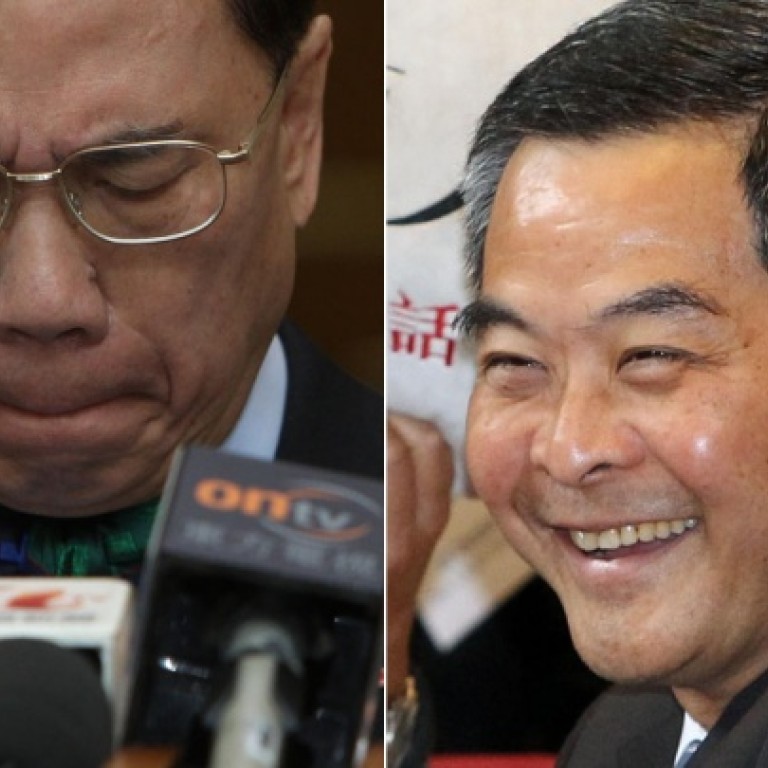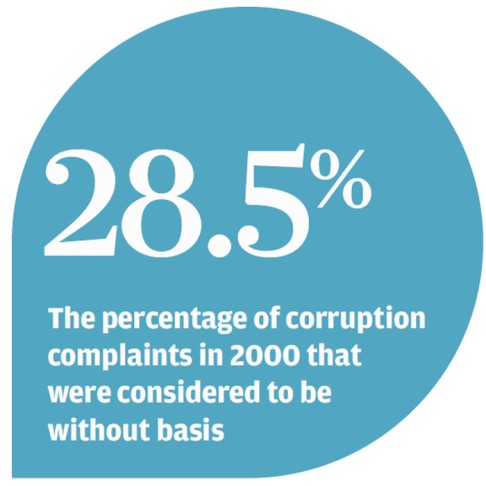
Up to 3 in 10 complaints to ICAC deemed too weak for further action
Corruption complaints that are deemed "pursuable" - excluding election-related cases - account for 70 per cent to 80 per cent of all reports the ICAC receives every year, a review of its annual reports for the years 2000 to 2011 shows.
As many as three in 10 corruption reports lodged with the Independent Commission Against Corruption lack substance and are not followed up, according to ICAC figures.

In 2011, some 23 per cent of the complaints were classified as non-pursuable, the same as in 2010 and up on the 21 per cent in 2009. The figure was 28.5 per cent in 2000.
There have been concerns that the agency has morphed into a political tool for groups or individuals who deliberately publicise their complaints to graft-busters - however frivolous - to inflict political and personal damage on opponents.
Former deputy commissioner Tony Kwok Man-wai has previously told of politically motivated complainants using the ICAC to taint their opponents.
Whether this practice has affected the number of non-pursuable cases is not yet clear. The breakdown for last year - which saw a flurry of "political complaints" timed around the elections for chief executive and the Legislative Council - will not be released until around July, although the total number of corruption reports is known: 3,731.
It used to be that the ICAC went after serious cases, such as crooked police officers stashing away millions in corrupt money. Now, many of its cases are about illegal structures, alleged broken promises to election supporters, and political leaders' dealings with rich friends.
The ICAC is obliged by law to look into all corruption reports, even if the evidence is weak.
Among the big names subject to its investigations in the past year or so were Chief Executive Leung Chun-ying, his predecessor Donald Tsang Yam-kuen and former chief secretary Henry Tang Ying-yen, who stood against Leung in last year's race for the top job.
Executive Council member Franklin Lam Fan-keung, a property investor, had his Exco job suspended over the sale of two flats weeks before the government introduced new curbs and taxes to cool the real estate market in October.
None of the above has been charged with any offences.

